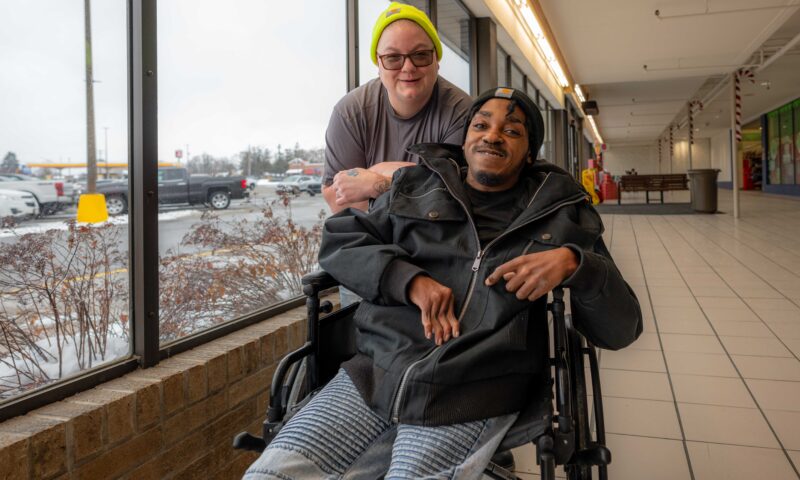

In October, Michigan home care workers formed a statewide union of 32,000. Experts say it’s a template for protecting rights in 2026.
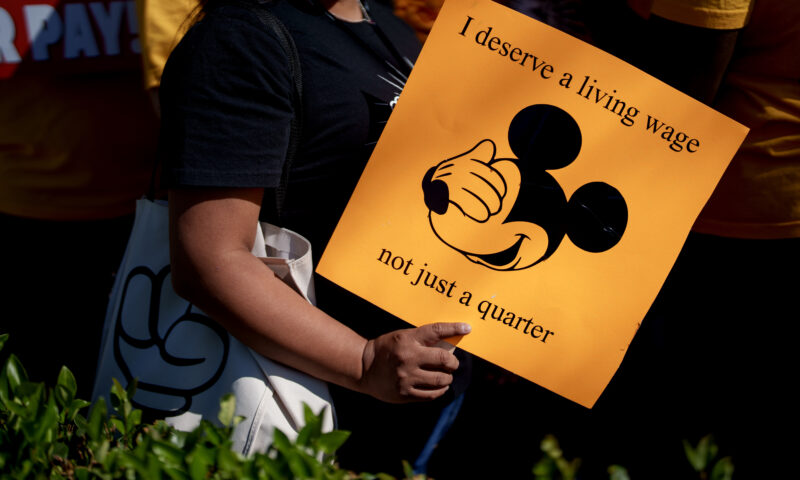

A six-year legal battle ends with a massive payout — and a reminder of what unions can achieve.
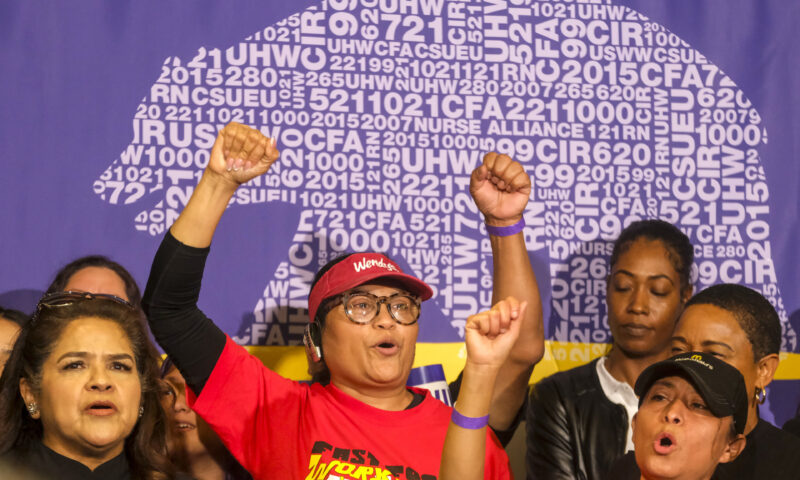

Researchers refute fast food industry’s apocalyptic predictions about raising the minimum wage.
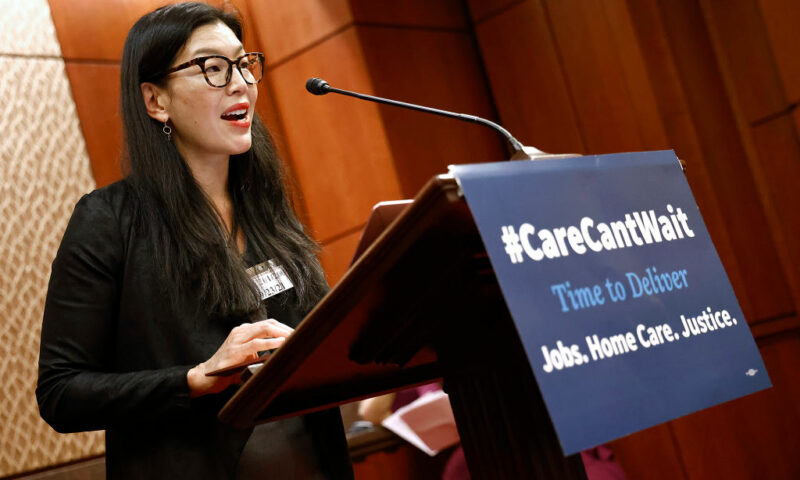

Care for children, the elderly and disabled is among the lowest-paying industries. Poo thinks federal investment could become reality.


Likely all Los Angeles workers, says a new study of pay and expenses. But the political will is not yet there.
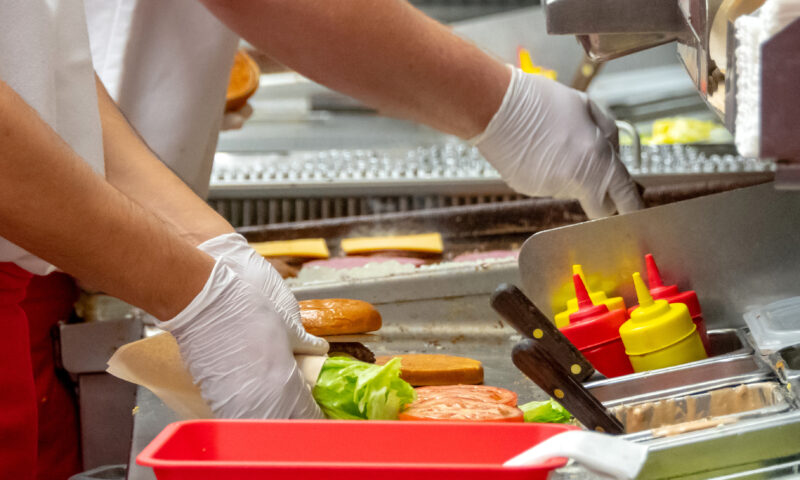

Fast food industry contributes to homelessness in California, says new report.
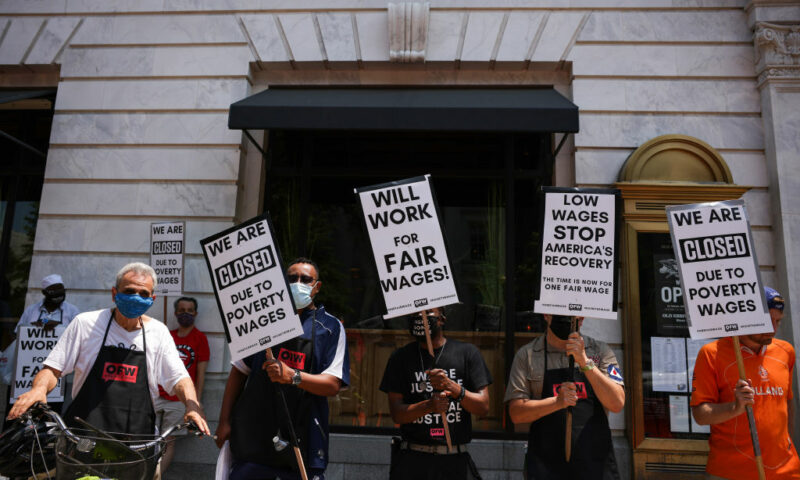
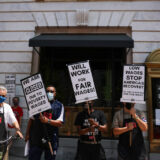
But where they don’t, millions of workers are stuck at the record-low federal floor.
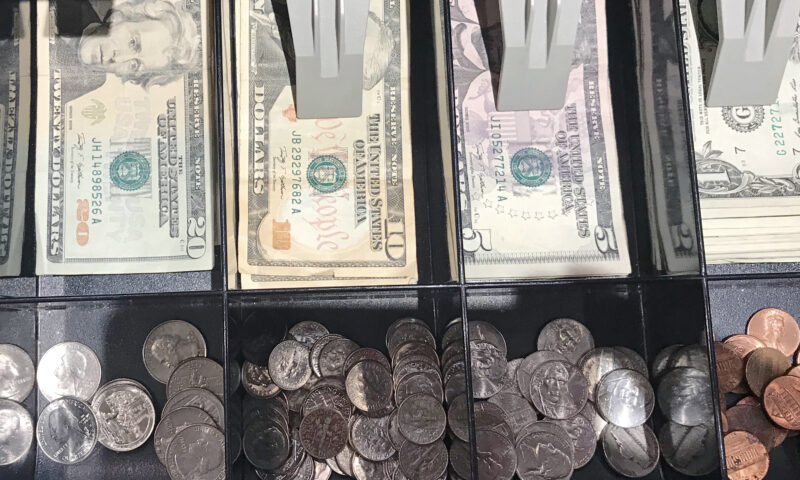

Lifting the minimum wage to $18 would elevate the earnings of 26% of the state’s workforce. What will lawmakers do?


The L.A. City Council’s recent approval of a hotel worker protection measure is part of a growing trend.
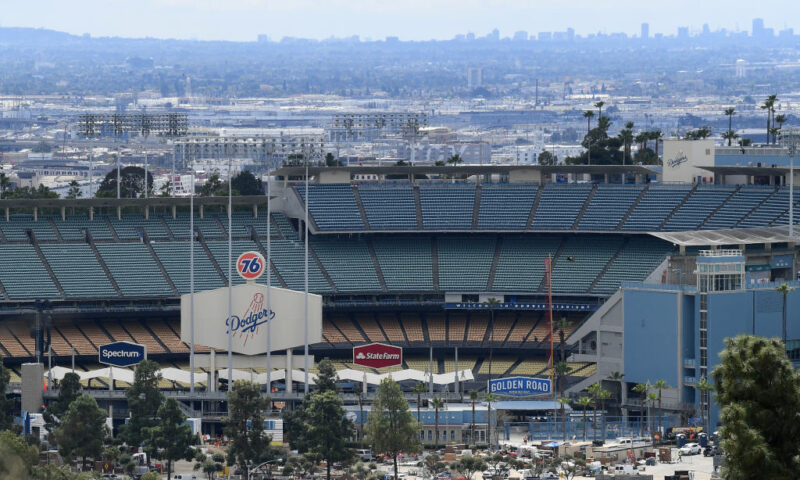

When it comes to wages, baseball’s billionaires give stadium workers peanuts.


Due to decades of wage stagnation, it will take an aggressive set of pro-labor policies for workers to be properly compensated.
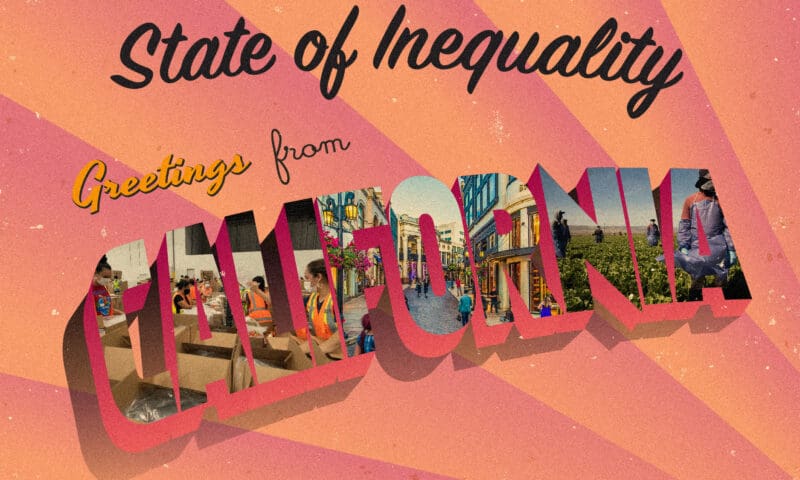
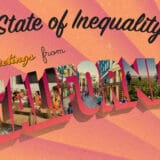
Exploring income inequality in the land of milk and money.


A new state bill seeks to find out what we don’t know about the jobs we want to have.


For US is designed to help businesses across the country determine if they are providing a real living wage.


Disneyland is facing a class-action lawsuit from workers who claim the Anaheim resort is dodging a new minimum wage law.
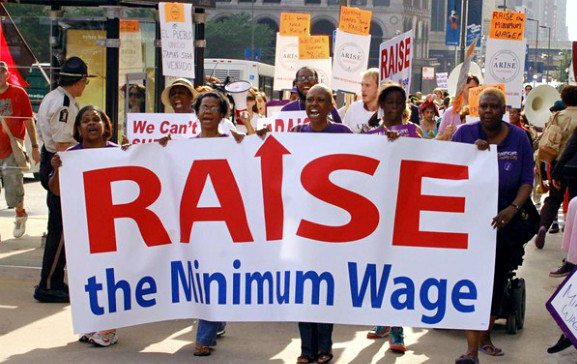
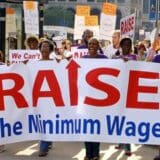
On Tuesday, the Los Angeles City Council voted 14-1 to adopt a citywide minimum wage of $15/hour by 2020. The next day, marching behind a giant banner that read, “McDonald’s: $15 and Union Rights, Not Food Stamps,” 5,000 cooks and cashiers show up at the company’s corporate headquarters in Oak Brook, Illinois, to kick off the largest-ever protest to hit the burger giant’s annual shareholder meeting.
These events represent the two battlegrounds in the growing war over wages taking place across the country. One strategy focuses on getting elected officials in local and state governments to adopt minimum wages above the federal level. The other strategy involves putting pressure on major employees — typically highly visible companies that depend on positive public relations to gain consumers’ dollars — to raise the wages of their employees.
The two strategies complement rather than compete with each other,
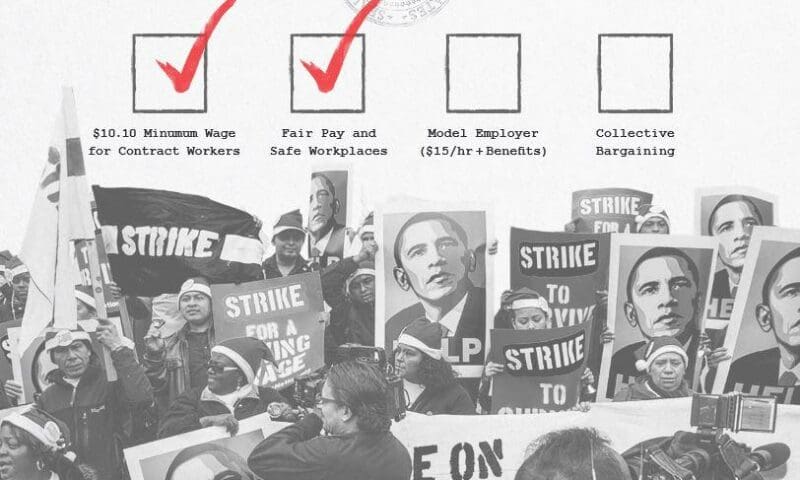
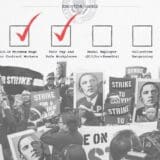
On Thursday, Americans earning low wages from businesses that contract with the federal government walked off the job to urge President Obama to do “more than the minimum” by signing executive orders that ensure workers receive living wages, adequate benefits and a voice on the job.
The organizers of the campaign, Good Jobs Nation, released a report earlier this week explaining why this change is necessary. As one of the nation’s largest employers, the federal government funds nearly two million poverty-wage jobs that pay less than $12 per hour. Unfortunately, many of these workers never receive any benefits such as paid sick leave and are forced to rely on public assistance, which costs more to taxpayers. We already know these same low-wage conditions wreak havoc on state and local economies. Governments may think they are getting a great deal when they outsource services, but when federal contractors fail to pay living wages to Americans providing essential functions,
» Read more about: Low-Wage Contract Workers: Obama Must Do More »
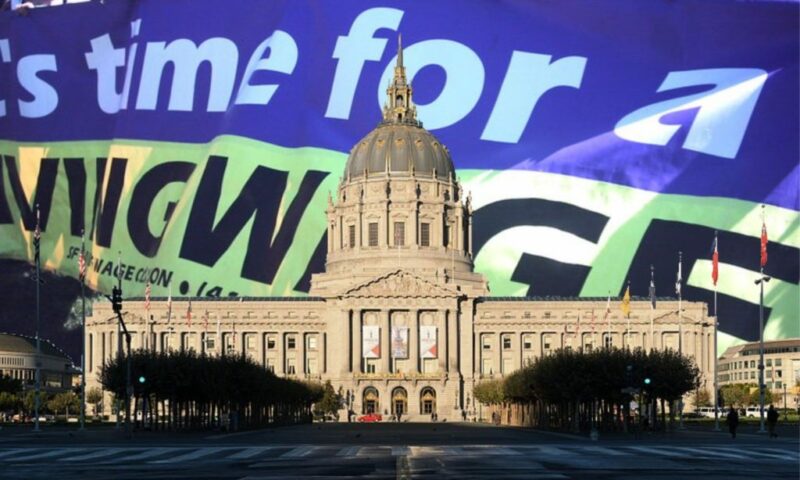

On Tuesday San Francisco voters approved by a 77 to 23 percent margin Proposition J, which will increase the city’s minimum wage from the current $10.74 per hour to $12.25 per hour by May 1, 2015. The city’s minimum wage would climb to $13 per hour by July 2016; to $14 per hour by July 2017 and $15 per hour by July 2018.
“Prop. J will provide a much needed raise to $15 per hour for 140,000 of the lowest paid workers in our city,” Gordon Mar, executive director of Jobs with Justice, San Francisco, told Capital & Main. “Prop. J will also raise the bar nationally for minimum wage policies.”
The “Fight for $15” to gain a higher minimum wage for workers began in Seattle, Washington. Voters there, with Socialist Alternative city council member Kshama Sawant spearheading a grassroots movement,
» Read more about: Big Bay Area Victories for Living Wages »
With Los Angeles Mayor Eric Garcetti and six city council members proposing an increase in the minimum wage, the issue sits firmly on the front burner of L.A. government. Of course the Chamber of Commerce and its allies wring their hands and predict disaster, and some economists are throwing scary statistics back and forth.
Will raising the minimum wage to a livable income raise prices? Probably a bit in some parts of the economy. Will people lose their jobs? Probably a few in some sectors, for a short time. Will the economy grow as a result of poor people having more income to spend? Again, probably. Will life be better for low-wage working families? Undoubtedly.
Minimum wages should provide enough income for working families to put shelter over their heads, food on their tables and clothes on their backs. Employers should pay working people enough to not require government and taxpayers to supply the basic needs of a family.
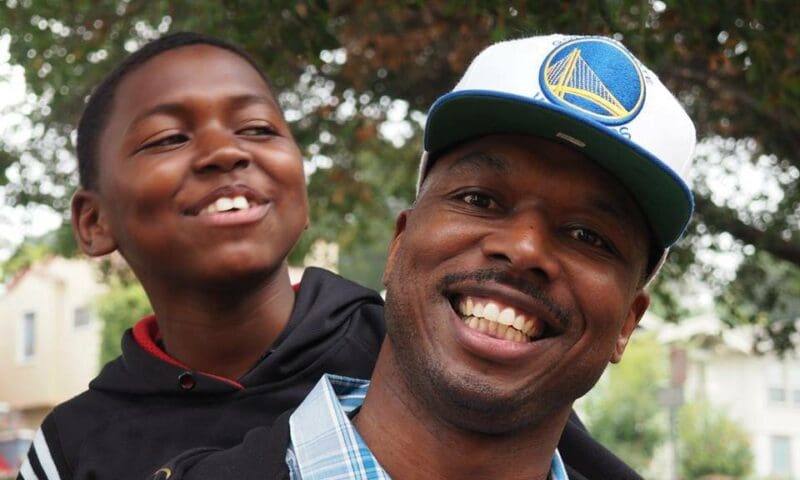

OAKLAND – The growing nationwide movement by cities and counties to raise the minimum wage is currently centered here in the Bay Area, and its success couldn’t be more urgent for workers like John Jones III.
Jones, 40, is a licensed aircraft mechanic but works as a Burger King security guard in downtown Oakland, making $10 an hour — $1 more than California’s minimum wage. His life is a series of financial challenges and daily indignities as he struggles to support his wife D’Nita, his 12-year-old son Kai and his newborn boy, Josiah.
To take a shower in his apartment, Jones has to use pliers to turn on the water because the knobs are broken. He can’t complain to his landlord because he’s behind on the rent. When his family runs out of toilet paper, Jones cuts paper towels into quarters to save a few bucks. He covers the windows in his bedroom with blankets because he can’t afford curtains.
» Read more about: Bay Area Cities Set Sights on Raising Their Minimum Wage »